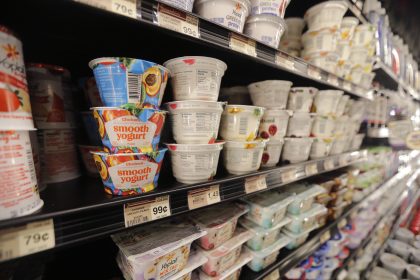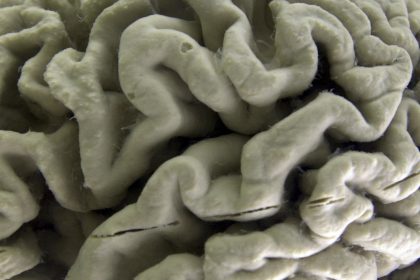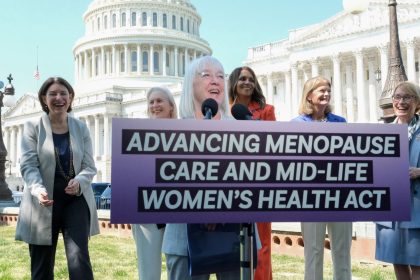The Impact of Human Connection on Your Health

WASHINGTON — As we trudge through the winter, months of cold and dreary weather may sap our desire to go outside and socialize. While it’s normal to isolate sometimes, chronic isolation can increase loneliness and be detrimental to your mental and physical health.
Scrolling on social media may temporarily make you feel connected, but research shows it’s not enough. Here, we’ll explain the loneliness epidemic declared by the U.S. surgeon general in 2023, break down its impact on your health and leave you with some science-backed tips to feel less alone.
The Loneliness Epidemic
Do you remember hearing the phrase “the loneliness epidemic” last year? On May 3, 2023, the U.S. surgeon general declared loneliness and isolation a public health issue. People already spent too much time alone before the COVID-19 pandemic, but quarantine, remote work and socializing from home took away even more valuable time we used to spend connecting with others.
While a large number of people returned to work and activities, many still live a remote lifestyle. Studies on loneliness and health date back to the 1960s, though they usually focused on older adults living alone. Nowadays, it also affects adolescents, potentially due to the rise of social media.
Emotional Loneliness Versus Social Isolation
First, let’s define some terms. Emotional loneliness is the feeling of being lonely or alone, which can happen even if you are with someone else. Social isolation is literally being without a social network, connections, a circle of people for support or belonging to a community.
While you may feel lonely even if you are not isolated, being isolated increases the likelihood of feeling lonely.
- A report from the National Academies of Sciences, Engineering, and Medicine states that one-third of adults over 45 feel emotionally lonely, and one-fourth of adults over 65 are socially isolated.
- According to the World Health Organization, in addition to one in four older adults being socially isolated, 5%-15% of adolescents feel emotional loneliness. The WHO states loneliness and isolation affect people of all ages worldwide.
- The Centers for Disease Control and Prevention notes that immigrants and people from the LGBTQ+ community are at a higher risk for loneliness and isolation.
Surgeon General Warning
In May 2023, the U.S. surgeon general declared loneliness and isolation to be critical public health issues in the United States. The report states that even before COVID-19, 50% of adults in the United States reported significant feelings of loneliness. The advisory warns that isolation and loneliness can harm physical, mental and societal health. Lacking human connection has been compared to the same levels of danger to your health as smoking every day.
How Human Connection Affects Your Health
Why does this matter? Let’s break it down.
How It Works
Research explains how loneliness and isolation have a direct impact on your health.
When a person is socially isolated, the brain perceives this as a threat, which activates the HPA axis or the stress response system in your brain. More HPA axis activity sends stress hormones throughout your body, restricting blood flow, harming your vascular system and increasing inflammation.
- A lack of social support can weaken your immune system and metabolism while increasing inflammation.
Physical and Mental Health Risks
Here’s what happens next.
- Acute Symptoms: The Mayo Clinic states loneliness and isolation can cause immediate symptoms, including cold, flu, headaches, muscle aches and sleeping too much or too little.
- Long-Term Risks: The surgeon general’s report lists the risks of “poor or insufficient connection.”
- A 29% increased risk of heart disease.
- A 32% increased risk of stroke.
- A 50% increased risk of dementia.
- A 60% increased risk of premature death.
- Chronic Diseases: Other research lists that isolation can also increase your risk of heart and lung disease, cardiovascular disease, high blood pressure, atherosclerosis, obesity and metabolic diseases.
- Mental Health: Loneliness increases the risk of developing depression, anxiety, psychological stress and of committing suicide. It can also cause hostility, negativity, sleep disturbances, less impulse control and lead to cognitive decline.
- Children and Adolescents: Research shows children who experience loneliness and isolation are more likely to develop depression and anxiety.
How to Fight Loneliness
Remember that emotional loneliness is different from social isolation. If you feel lonely regardless of your circumstances, it’s best to seek help from a mental health professional.
Here are some tips from the CDC, the WHO, the U.S. surgeon general, the Mayo Clinic and other scientific studies to combat social isolation.
- Self-Care: Even if you’re alone, be kind to yourself. Get flowers, listen to music, stimulate your brain with podcasts or audiobooks, try meditation and mindfulness and discover beauty at a park or museum.
- Reconnect: Reach out to just one person, an old friend, co-worker, family member or small group.
- Hobbies and Interests: Engage with others who enjoy the same hobby or join a group. It’s a great way to connect, even if it’s virtually.
- Education: Many studies since 1984 have shown that taking a class or engaging in education with a group helps older adults.
- Take a Walk: Say, “Hi,” to a stranger.
- Group Physical Activity: Physical activity benefits mental and physical health. Doing it with others fights isolation at the same time.
Lonely Winter Blues
Soon, spring will come, and you may feel more able to take advantage of opportunities to connect with others. In the meantime, look for a virtual event, call a friend or seek professional support.
You can reach us [email protected] follow us onFacebookandX.

























